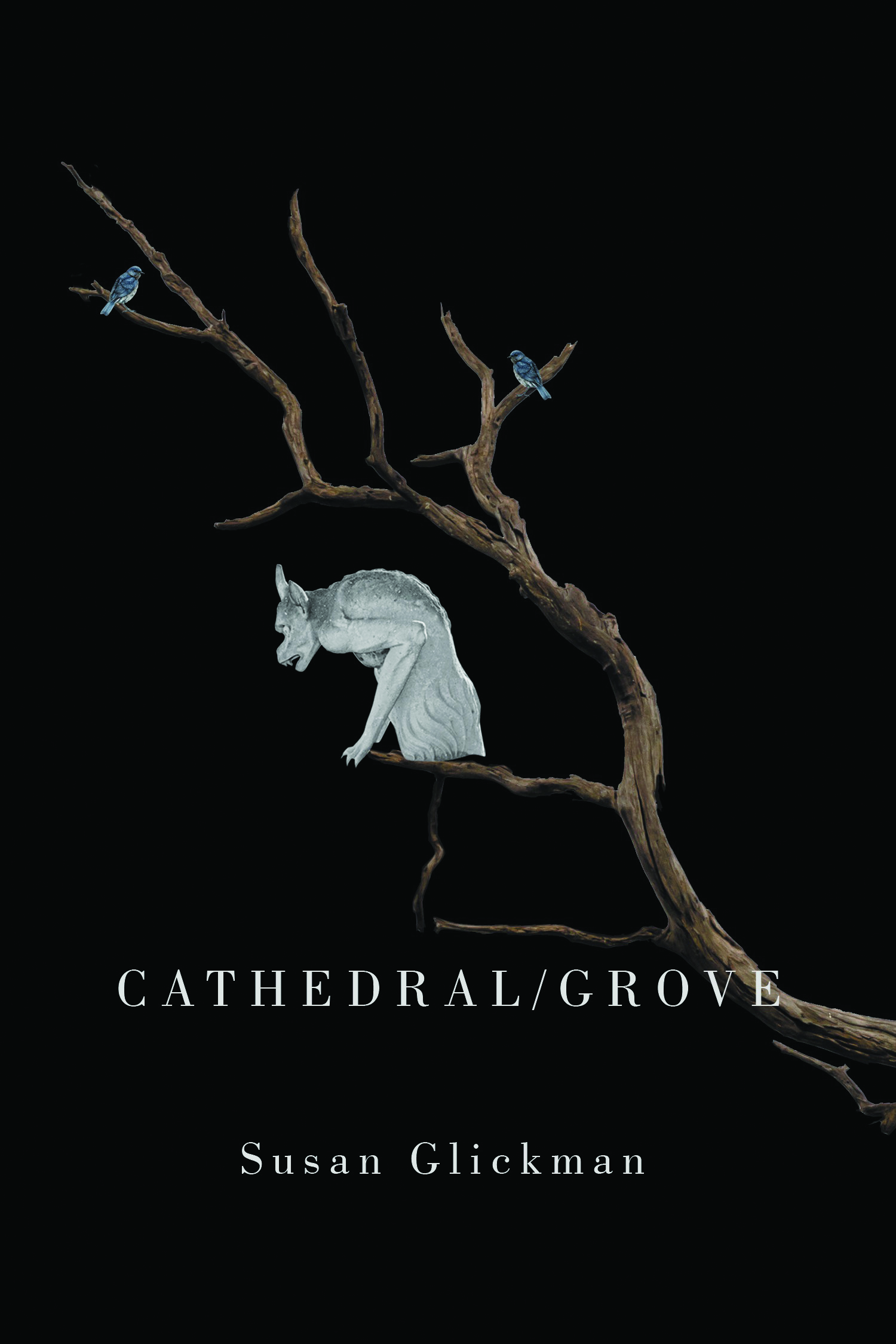Cathedral/Grove
by Susan Glickman
Vehicule Press
80 pages
$20
In her newest poetry collection, Susan Glickman provides the reader with a reconstructed world—that is, Cathedral/Grove is a collection full of complex images and themes that contrast and build upon each other. In the poem “Maple,” Glickman considers the titular tree, and ends with a metatextual rumination, stating that “Like it or not, / everything is a metaphor for everything else: / fish, virus, star, landmine, tree.” The metaphors in this collection tend to work on these threads of connection: the built and the natural images come into contrast with the human, providing a lush and detailed backdrop for human and non-human experience.
The structure of the collection, divided into five sections, initially creates a jarring division between the poems and their themes. In “Walking the Dog,” the opening section, poems capture the ruminant possibilities of everyday life—and how considerations of death emerge within them. The next section, entitled “Survival Kit,” is comprised of persona poems that focus upon vegetables, and, later in the collection, on bladed tools. These objects have fraught relationships with the human reader. In the poem “Potatoes,” the nightshade vegetables extoll their virtues, asking “[h]ow many creatures are as / resolutely themselves?” The potatoes, declared twice to be “a rosary of the earth,” operate in both heaven and hearth. These spaces are likewise reinforced in the section entitled “Cathedral/Grove,” where spirituality and war come to the fore. In this section, gods are “know[n] to be fierce and unpredictable / as life itself / is fierce and unpredictable.” Here is the repeated image of voices emerging “under the earth.” Glickman continues to build relationships between land and the divine, as well as the ordinary and transcendent; voices, potatoes, and trees all work together to comment upon the objects that comprise the world.
What begins as a fragmented collection becomes thrillingly cohesive as the reader immerses themselves further into the text. The reader, having considered the apple in a previous poem, easily and readily recalls Glickman’s innovation when it reappears in other sections—each time, the apple has been thematically and structurally transformed. This transformed object also re-appears within the space of war, mythology, and other more intimate glimpses of experience. The overall impact is one of enormity; the miniscule elements of daily life become what comprise greater narratives about history and lives-as-lived.
Cathedral/Grove seamlessly ponders and elevates the ordinary, using it as an axis through which the transcendent may be considered. These images and themes cohere together into a stunning and expansive poetry collection that demands the reader reconstruct a world under constant transformation.














